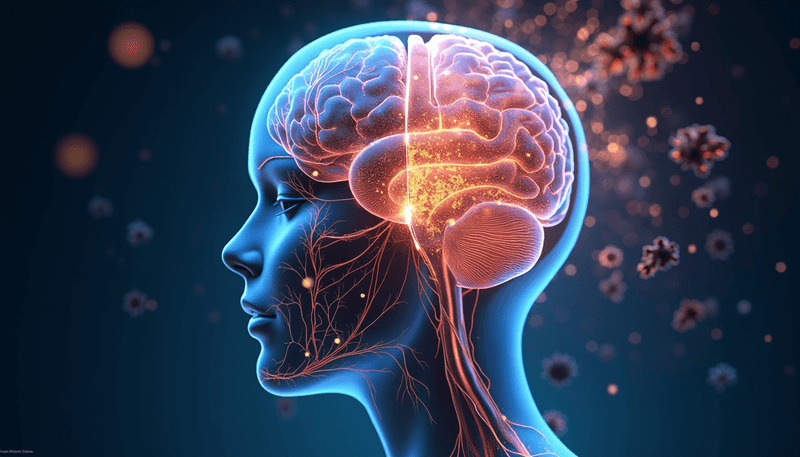Aging Changes How Estrogen Guards Brain

The timing of hormone therapy after menopause might matter more than we previously thought. Recent groundbreaking research reveals why estrogen's protective effects on brain health vary dramatically with age, offering new insights for women considering hormone therapy. As a health writer who has personally navigated the complexities of hormonal health, I find these findings particularly fascinating.
The "Window of Opportunity" for Estrogen Protection
Think of your body's response to estrogen like a well-oiled machine that gradually changes with time. Research shows that younger women who start hormone therapy soon after menopause receive better brain protection than those who begin later in life. This isn't just about timing – it's about how your body's systems adapt and change with age.
What if I told you that starting hormone therapy at the right time could significantly impact your brain health?
The science behind this involves a fascinating system called arterial baroreflex (ABR), which helps regulate blood pressure and protect your brain. In younger women, estrogen helps maintain this system's efficiency, much like regular maintenance keeps a car running smoothly. However, as we age, this system becomes less responsive to estrogen's beneficial effects.
Understanding Your Body's Anti-Inflammatory Defense System
Your body has a natural anti-inflammatory system that works like a sophisticated security network. The research revealed that estrogen helps activate this system through something called the α7nAChR pathway - think of it as your body's built-in firefighting team that helps prevent brain damage.
Have you ever wondered why some women respond differently to hormone therapy than others?
When we're younger, estrogen effectively "trains" this security team to respond quickly and efficiently. However, as we age, this training becomes less effective. The study found that in older rats, this system became less responsive to estrogen's signals, similar to how an aging security system might become less sensitive to its control panel.
The Role of Blood Pressure Control in Brain Health
The research highlights how blood pressure regulation becomes increasingly important as we age. Your body's blood pressure control system (ABR) is like a sophisticated thermostat that needs to maintain perfect balance. While estrogen helps maintain this balance in younger women, its effectiveness diminishes with age.
Practical steps you can take:
- Regular blood pressure monitoring
- Maintaining a heart-healthy lifestyle
- Discussing timing of hormone therapy with your healthcare provider
- Understanding your personal risk factors
Age-related changes in blood pressure control can affect how well estrogen protects your brain. This explains why some women might experience different outcomes with hormone therapy depending on when they start treatment.
When was the last time you had your blood pressure checked?
The study found that medications improving blood pressure control (ketanserin) helped protect the brain even when estrogen alone wasn't effective. This suggests that maintaining good blood pressure control might be particularly important for older women.
A Personal Path Forward
As someone who has witnessed both personal and professional aspects of menopause management, I understand how complex these decisions can be. Every woman's journey through menopause is unique, and these research findings emphasize the importance of personalized timing for hormone therapy.
Key takeaways for action:
- Consider hormone therapy timing carefully if it's right for you
- Maintain regular health check-ups, especially blood pressure monitoring
- Discuss your personal risk factors and timing options with your healthcare provider
- Stay informed about the latest research in hormone therapy
Your next step? Schedule a comprehensive health check-up and discuss these findings with your healthcare provider. Understanding your personal health timeline could make a significant difference in your long-term brain health strategies.
What one step will you take today to better understand your hormone health timeline?

Olivia Rose Chen-Martinez
Olivia Rose Chen-Martinez is a seasoned health and wellness writer with a focus on women’s health issues, including PCOS, perimenopause, and holistic wellness. With a background in Journalism and Public Health from UC Berkeley, Olivia draws on over 15 years of writing experience to deliver empathetic, research-backed insights. Her work blends personal anecdotes and actionable advice, resonating with readers seeking accessible and trustworthy information. Based in Austin, Texas, Olivia is also a certified yoga instructor and a dedicated advocate for balanced, integrative approaches to women’s health.







